The Cheap Repository Tracks were a series of moralistic stories conceived and largely written by Hannah More to encourage worthy reading in the newly educated ‘lower’ classes. They were originally published 1795-98 but appeared in various permutations well into the 19th century. To find out more see the McGill Library’s Chap Book Collection. Full, free copies of the Cheap Repository Tracts can downloaded from Google Books and a lot of Hannah More’s writing can be found on writersinspire.org.
Hannah More was a religious writer, educator, abolitionist and philanthropist born in Fishponds, Bristol in 1745. Her father, Jacob, opened a boarding school for girls in Trinity Street and she helped set up 12 schools before 1800.
This collection of wood prints were used to illustrate stories that warned of involvement in crime and unvirtuous pastimes; indeed any pursuits that was not hard work or church going.
All of the pictures on this page were found in Bristol Central Reference Library. For permission to reproduce them please contact refandinfo@bristol.gov.uk.
![The [Bread] Riot Or half a loaf is better than no bread. In a dialogue between Jack Anvil and Tom Hod. To the tune of "Cobbler there was"](https://www.brh.org.uk/site/wp-content/uploads/2013/10/cheap-repository-bread-riot-300x222.png)
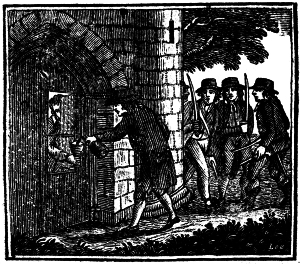
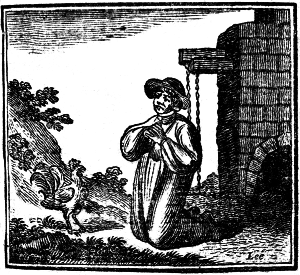
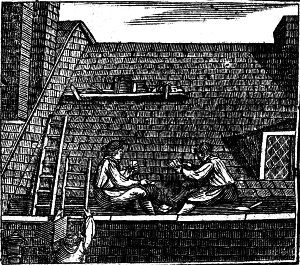
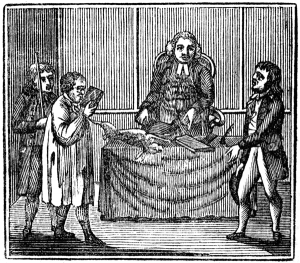
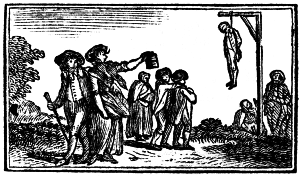
The Black Act (9 Geo. 1 c. 22), was an Act of the Parliament of Great Britain passed in 1723 in response to a series of raids by two groups of poachers, known as the Blacks. Arising in the aftermath of the South Sea Bubble’s collapse and the ensuing economic downturn, the Blacks gained their name from their habit of blacking their faces when undertaking poaching raids. They quickly demonstrated both “a calculated programme of action, and a conscious social resentment”, and their activities led to the introduction of the Black Act to Parliament on 26 April 1723; it came into force on 27 May. The Act introduced the death penalty for over 50 criminal offences, including being found in a forest while disguised, and “no other single statute passed during the eighteenth century equalled [the Black Act] in severity, and none appointed the punishment of death in so many cases”.
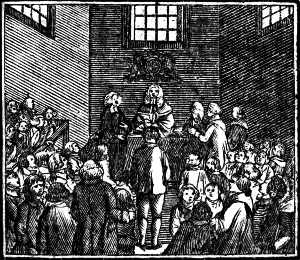
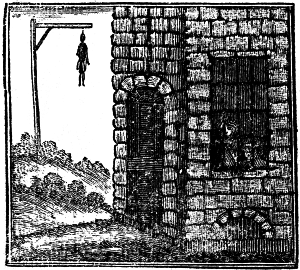
*James MacLaine (or Maclean, MacLean, or Maclane) and his accomplice William Plunkett were notorious highwaymen in the mid-eighteenth century. MacLaine was hanged at Tyburn in 1750.
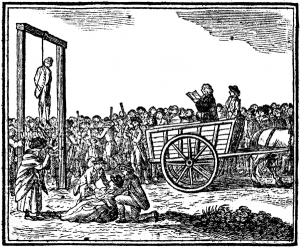
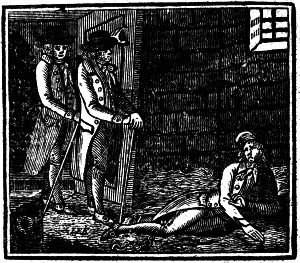
Wild Robert was a graceless youth,
And bold in every sin;
In early life with petty thefts
His course he did begin.
But those that Deal in lesser Sins,
In Great will soon offend;
And petty thefts, not check’d betime,
In murder soon might end…
Two versus from The execution of Wild Robert, being a warning to all parents, Cheap Repository Tracts





I am trying to find any information about anti-catholic behaviour in Bristol in the first half of the 19th century, such as: persecution against Catholics; Catholics having to worship in secret etc….Was anti-Catholicism a factor in the famous riots of 1831?
I would be grateful if anyone from the group could just point me in the right direction.
Thanks
Jim